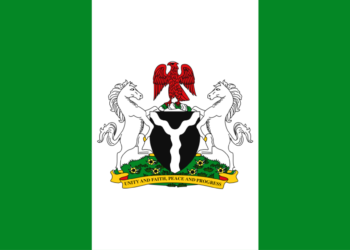The Debt Management Office (DMO) of Nigeria announced that the Federal Government of Nigeria (FGN) Savings Bonds auction for May 2025 resulted in a total allotment of N4.28 billion, a marginal decline from the N4.34 billion recorded in the April 2025 auction.
The results, published on the DMO’s official website, reflect sustained investor interest in the government’s retail-focused bond program, despite a slight dip in subscription levels.
Launched in 2017, the FGN Savings Bond program was introduced to deepen Nigeria’s domestic bond market, promote financial inclusion, and provide retail investors with access to low-risk, government-backed securities.
Over the years, the program has gained traction among Nigerians seeking stable investment options amid fluctuating economic conditions, including persistent inflation and volatile interest rates in traditional savings products.
The May 2025 auction, conducted between May 5 and May 9, offered two bond tenors: a 2-year bond maturing on May 14, 2027, and a 3-year bond maturing on May 14, 2028. Both series are set to settle on May 14, 2025, with quarterly interest payments scheduled for August 14, November 14, February 14, and May 14 throughout the bonds’ duration.
According to the DMO, the 2-year FGN Savings Bond, offered at an interest rate of 16.173%, attracted 994 successful subscriptions, resulting in a total allotment of N840.43 million.
The 3-year bond, with a slightly higher interest rate of 17.173%, saw stronger demand, with 1,537 successful subscriptions and a total allotment of N3.45 billion. The higher subscription for the 3-year bond suggests investor preference for longer-term securities, likely driven by the attractive yield and the stability of government-backed instruments.
Each bond was issued at N1,000 per unit, with a minimum subscription requirement of N5,000 and additional subscriptions in multiples of N1,000, up to a maximum of N50 million. This structure ensures accessibility for retail investors while allowing flexibility for larger investments.
The significant difference in scale between the April and May auctions highlights the distinct roles of these instruments. While the April bonds targeted institutional and high-net-worth investors, the May FGN Savings Bonds catered primarily to retail investors, emphasizing financial inclusion.
The marginal decline in May’s allotment could reflect cautious investor sentiment amid ongoing economic challenges, including inflation rates that have hovered around 33% in recent months, according to the National Bureau of Statistics.
However, the strong subscription numbers—2,531 successful subscriptions across both tenors—indicate that retail investors continue to view FGN Savings Bonds as a safe haven.
FGN Savings Bonds are designed to offer both accessibility and security. They qualify as approved investments under the Trustee Investment Act and are recognized as government securities under the Company Income Tax Act (CITA) and the Personal Income Tax Act (PITA).
This status grants tax exemptions for pension funds and other qualified institutional investors, enhancing their appeal.
Additionally, the bonds are listed on the Nigerian Exchange Limited (NGX), providing investors with the option to trade them on the secondary market, thereby improving liquidity. For banks, these bonds count as liquid assets when calculating liquidity ratios, making them a valuable component of financial institutions’ portfolios.
WHAT YOU SHOULD KNOW
The sustained demand for FGN Savings Bonds underscores their role in Nigeria’s financial ecosystem. As the country grapples with economic headwinds, including rising fuel prices and foreign exchange volatility, government securities provide a buffer for investors seeking predictable returns.
The DMO’s consistent issuance of these bonds also supports the government’s efforts to finance its budget deficit while reducing reliance on external borrowing.
ALSO READ TOP STORIES FROM VERILY NEWS


















